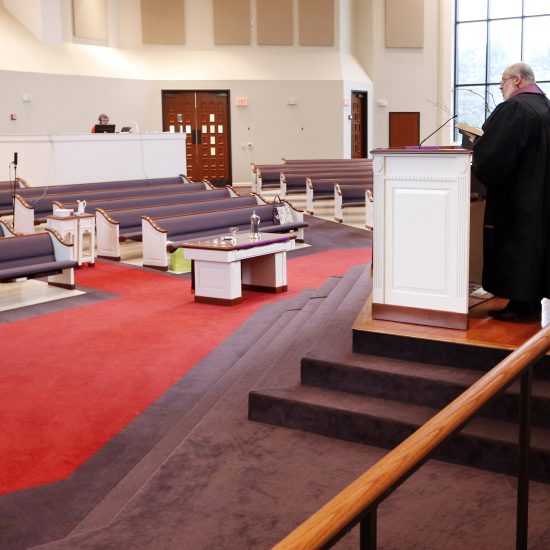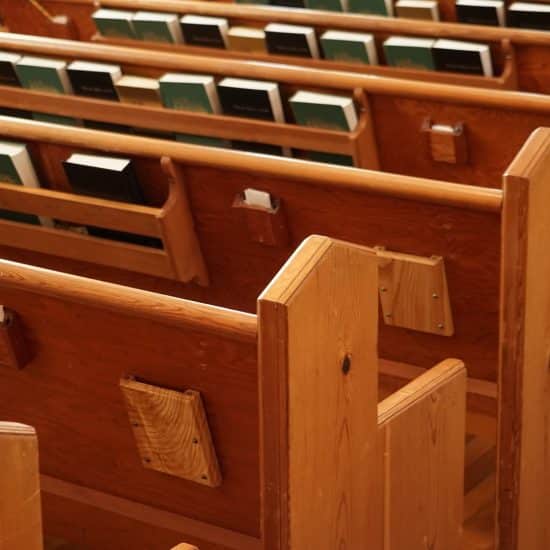Baptists and other evangelicals traditionally have referred to it as a “call to vocational or Christian ministry” or simply “the call.”
Through the generations, the call to ministry has been much more than a mere ministerial or other church-related career choice. When a pastor, missionary, worship leader or some other Christian servant/leader uses “call” terminology, it is always about God’s initiative in the divine pecking order.
 |
God, in whatever way he chooses, does the calling; the object of his calling — the call-ee, if you will — has no part in the calling itself except to respond to God’s divine leadership.
In the Bible, the matter of God’s call extends back to Adam and Eve, when God made them caretakers over the Garden of Eden. Later in scripture, God called Abraham to be the father of a nation, an initially reluctant Moses to guide the Hebrews out of bondage in Egypt, the boy Samuel to be a prophet (after God called to him three times as he slept), David to be a king, Deborah to be a judge and prophetess, Jesus’ disciples in the New Testament and Paul, the apostle to the Gentiles, to name a few.
When churches seek ministerial leaders, mission boards evaluate potential missionaries and other Christian entities look to secure leadership-level staff, they seek the assurance that God has done the calling before they hire, ordain or otherwise endorse candidates.
Ministerial search committees in general and pastoral search committees in particular almost always want to read and/or hear a testimony of a candidate’s call. Just as throughout scripture, each testimony is unique, and some are more dramatic than others.
Candidates may say they “surrendered to God,” suggesting in some cases that accepting the divine assignment came only after a person ran from it — often for years.
Most describe the experience as one that involved many influences that God used to convince them of a calling to vocational service, including prayer, Bible study, awareness of spiritual/physical needs, trusted counsel and other factors, including various life experiences.

Molly Marshall
|
Molly Marshall, president of Central Baptist Theological Seminary in Shawnee, Kan., leads an institution that trains leaders for church-related vocations. When questioned about the matter of God’s call, she is quick to say she believes every Christian has a calling.
“Every Christian is called to love God and others,” she responded via email during a recent visit to Myanmar (formerly Burma). “Any vocation can be a Christian service if it arises from the motivation to please God and serve others. ‘Full-time Christian service,’ thus, does not only mean ministerial vocations.
“Our very being is a calling,” she maintains, “just as God called the first human beings into life. God calls each person to the accountability of a creature to its creator.
“The surrender language makes it appear the calling will be onerous, something one would rather not do,” she wrote. “I believe God’s calling is what makes our hearts rise up. When we are faithfully responding to the holy nudge of the Spirit, a deep joy accompanies our work.”
The seminary president doesn’t believe God’s call comes in a vacuum.
“I think we get a sense of what we are good at along the way as we cultivate varied interests,” she said. “God’s call, however, is not simply about aptitude, but a deeper equipping that comes from the indwelling Christ through the Spirit.”
Marshall can relate to the calling of legendary pastor George W. Truett, well regarded by fellow members of First Baptist Church of Dallas, who over a period of time saw in Truett the character, gifts and qualities characteristic of the best in a pastor and over time “convinced” him of God’s specific calling on his life to be a pastor, ordained him and subsequently called him as pastor.
Truett served the church as pastor and became a nationally known Baptist statesman.
“I do believe that the community can voice the call of God, like in Truett’s case,” Marshall explained. “My experience of calling to the presidency follows that narrative. A board member asked if I would let my name go forward, and I said that if the search firm, search committee and board felt strongly that I was the right person, I would consider that God’s calling.”
Marshall agrees with the late Thomas Merton, a Trappist monk and writer, who said the “desire to please God is what pleases God.”
“I think the condition of attentiveness — listening for the voice of God, listening to the affirmations we receive in certain roles or ministries, and listening to questions people ask us about what we might consider our future to be.
“In John’s Gospel, Jesus teaches that those who want to do the will of the Abba will know what that will is,” she said. “Prayerful discernment, with the counsel of others, is essential in learning God’s will for our lives.”
Calling by God is not gender-specific, Marshall said.
“Calling is not assigned according to gender, but according to God’s good purposes and human receptivity,” she said. “I have seen many changes for women in ministry over the past 35 years. Women have patiently pursued untitled ministry and prepared to fulfill their true callings as pastors, chaplains, teachers and denominational and seminary leaders.
“I have counseled many women to begin to serve in whatever way possible,” she explained, citing her own experience as a theological educator.
“When I finished my Ph.D., I sent 120 letters to inquire about teaching openings (including Central), and no one wanted me. It was about gender, not competence,” she said.
“That is when I began to serve a rural pastorate in Kentucky, Jordan Baptist Church of Eagle Station. Within a year, I was hired by Southern [Baptist Theological Seminary, Louisville, Ky.] as the first woman in the School of Theology.
“However, that work in the small congregation was invaluable as I would be teaching persons serving in exactly that kind of setting,” she added. “It was also an attempt at being faithful on my part: ‘Whatever thy hand finds to do, do it with your might.’”
She has a strong conviction that a “person should pursue the best equipping possible — degrees, coaching, mentoring, interning, etc.” and be in a position to give evidence of calling in his/her life.
“Evidence of a calling is patience, humility and willingness to be a life-long learner,” she said. “Other evidence is a clear focus on empowering the work and witness of others and demonstration of values in line with the reign of God.”






